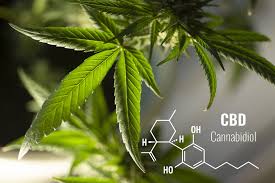
Understanding the different cannabinoids
Becky RebeccaShare
When it comes to cannabinoids, there is more than just THC and CBD. Understanding the different cannabinoids can provide valuable insights into the world of cannabis and its potential benefits.
What are Cannabinoids?
Cannabinoids are chemical compounds found in the cannabis plant. They interact with the body's endocannabinoid system, which plays a crucial role in regulating various physiological processes.
THC vs. CBD
THC (tetrahydrocannabinol) is the psychoactive compound in cannabis that produces the "high" sensation. On the other hand, CBD (cannabidiol) is non-psychoactive and is known for its potential therapeutic effects.
Other Cannabinoids to Know
Aside from THC and CBD, there are over 100 other cannabinoids in cannabis, each with its own unique properties. Some of the lesser-known cannabinoids include:
CBG (Cannabigerol): Known for its potential anti-inflammatory and antibacterial properties.
CBN (Cannabinol): Believed to have sedative effects and potential benefits for sleep.
THCV (Tetrahydrocannabivarin): May have appetite-suppressing and potential anti-inflammatory properties.
The Entourage Effect
Research suggests that cannabinoids work synergistically with other compounds in cannabis, a phenomenon known as the entourage effect. This means that the combination of cannabinoids, terpenes, and other compounds may enhance the overall therapeutic effects of cannabis.
Conclusion
Understanding the different cannabinoids in cannabis can help individuals make informed decisions about their use. While THC and CBD are the most well-known cannabinoids, exploring the potential benefits of other cannabinoids can open up new possibilities for cannabis-based therapies.
